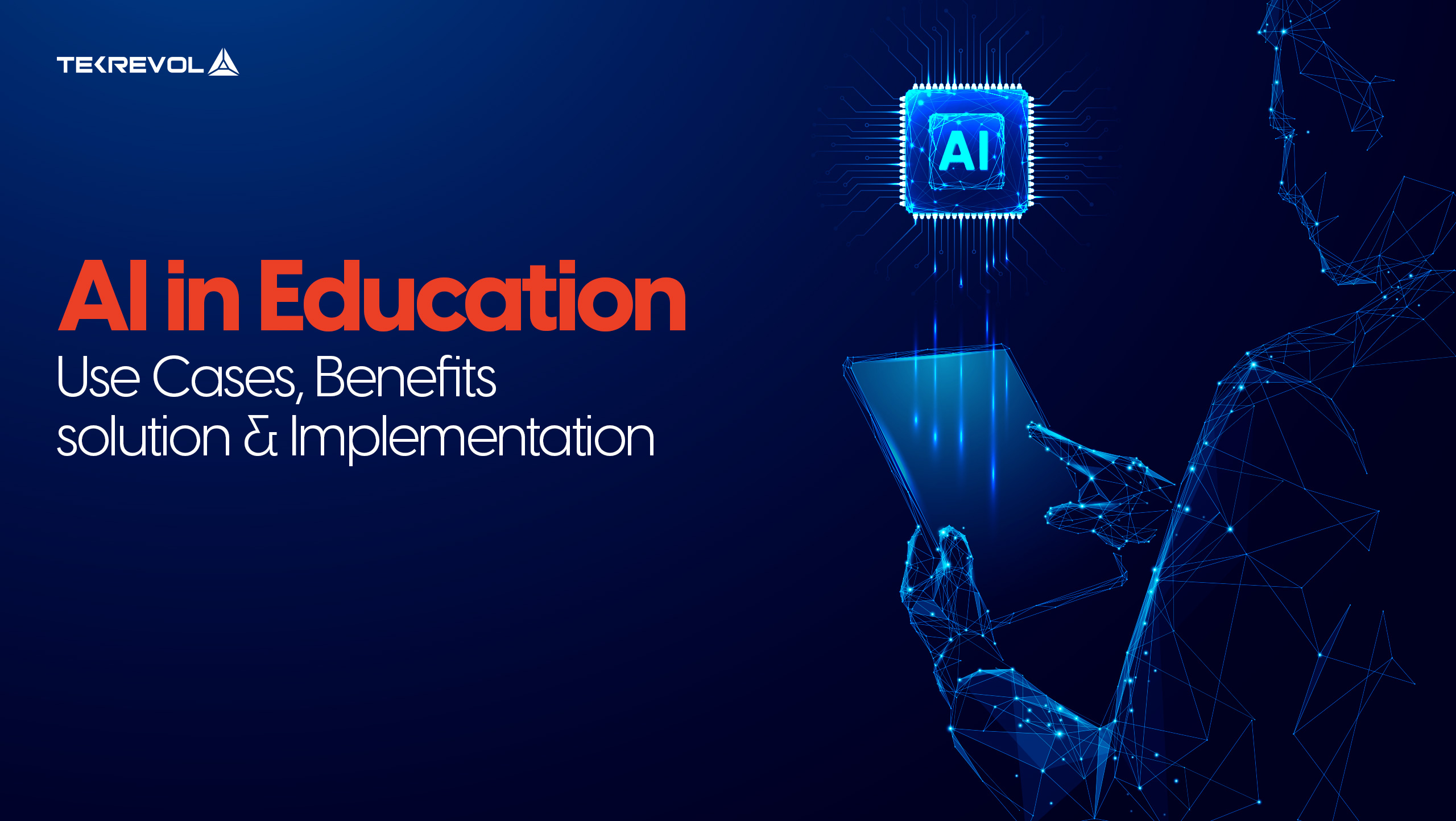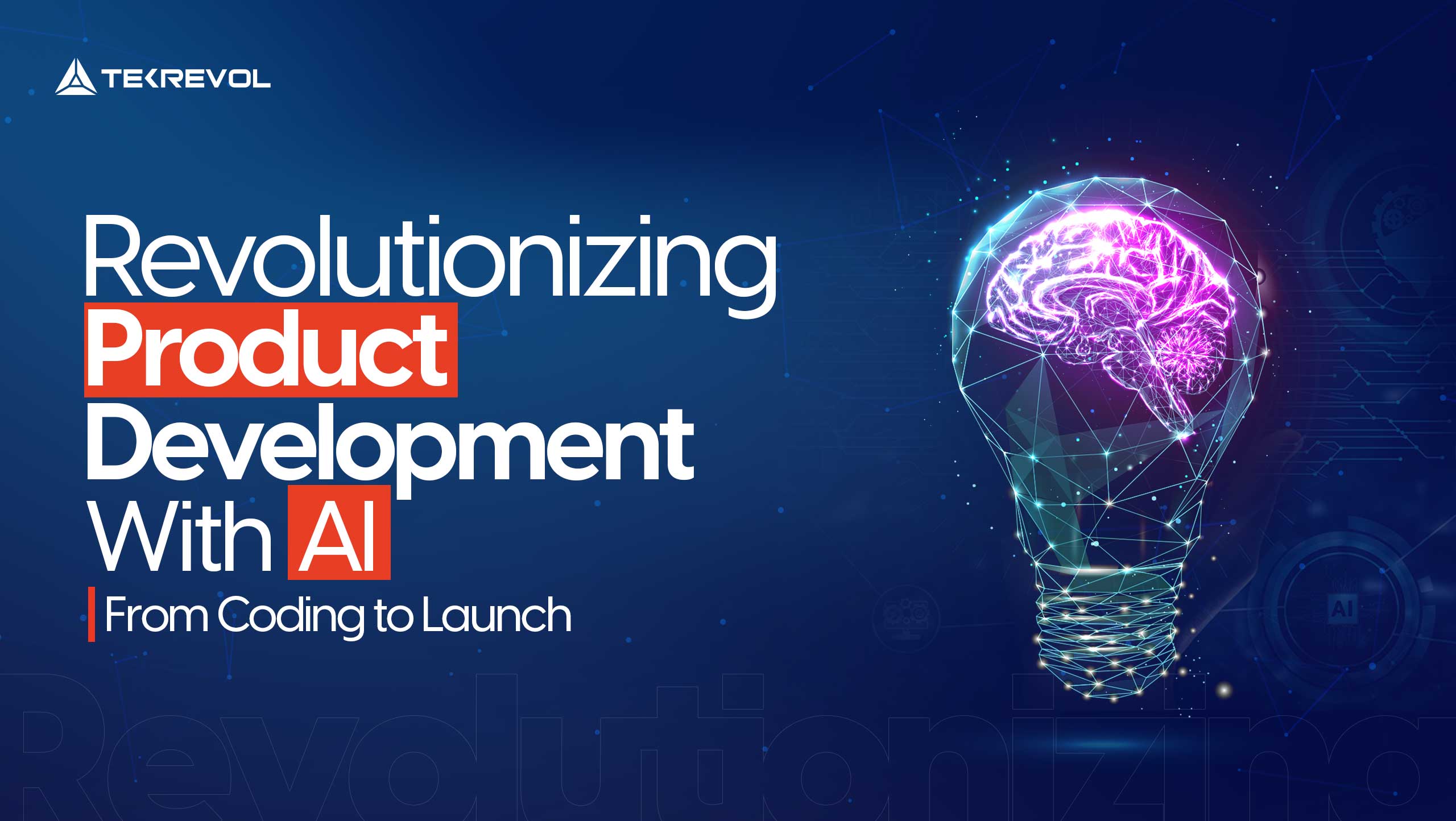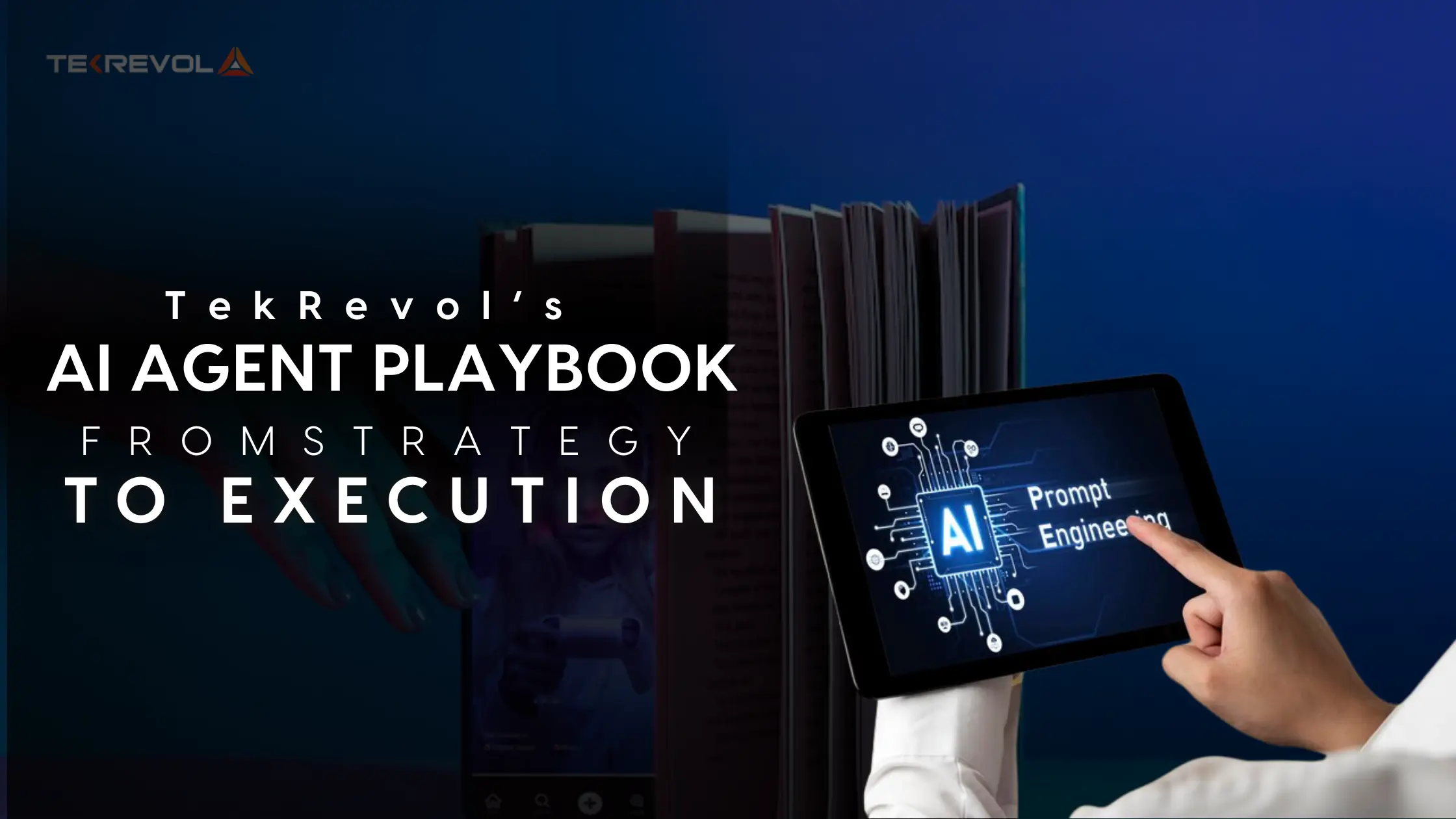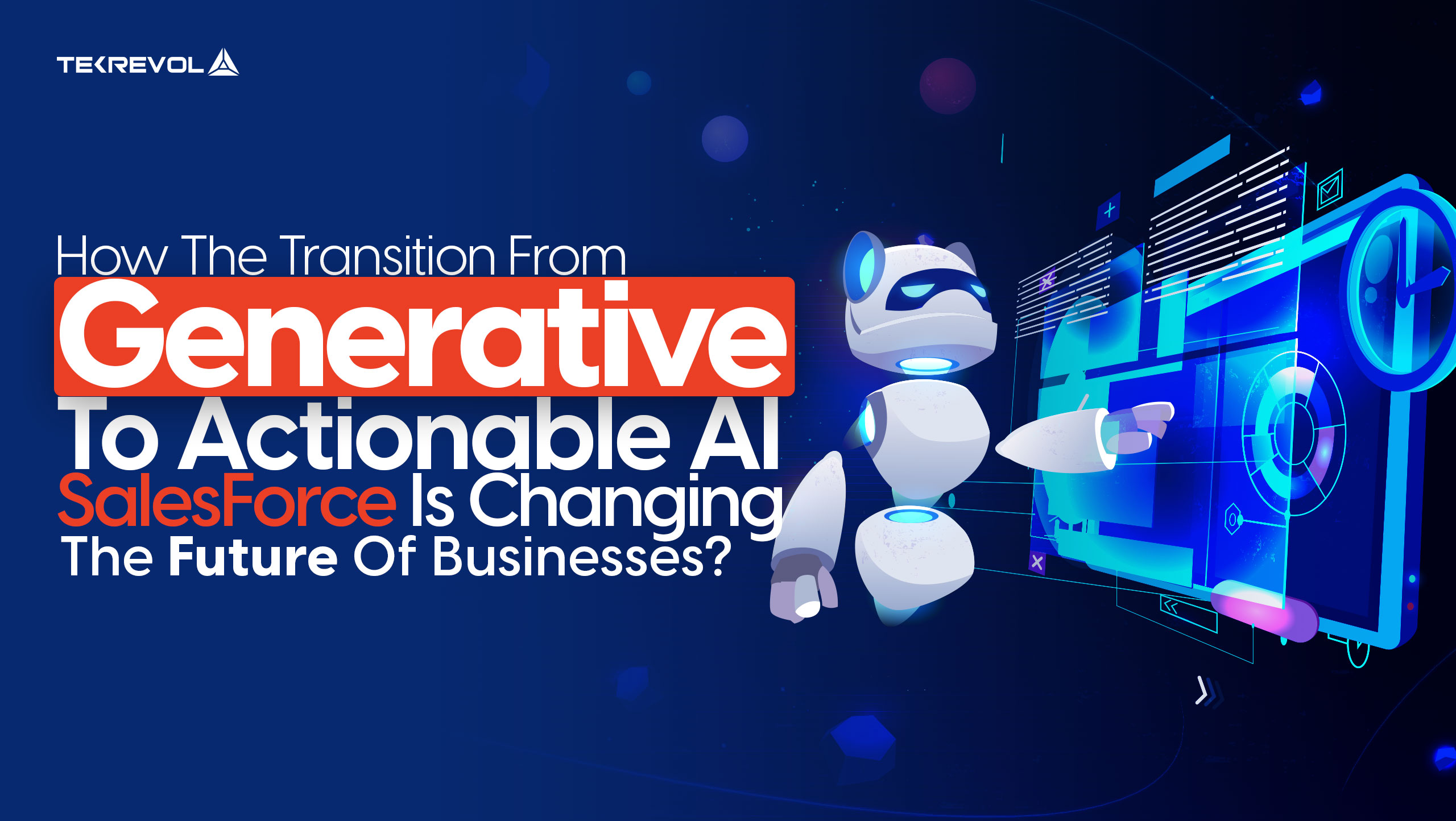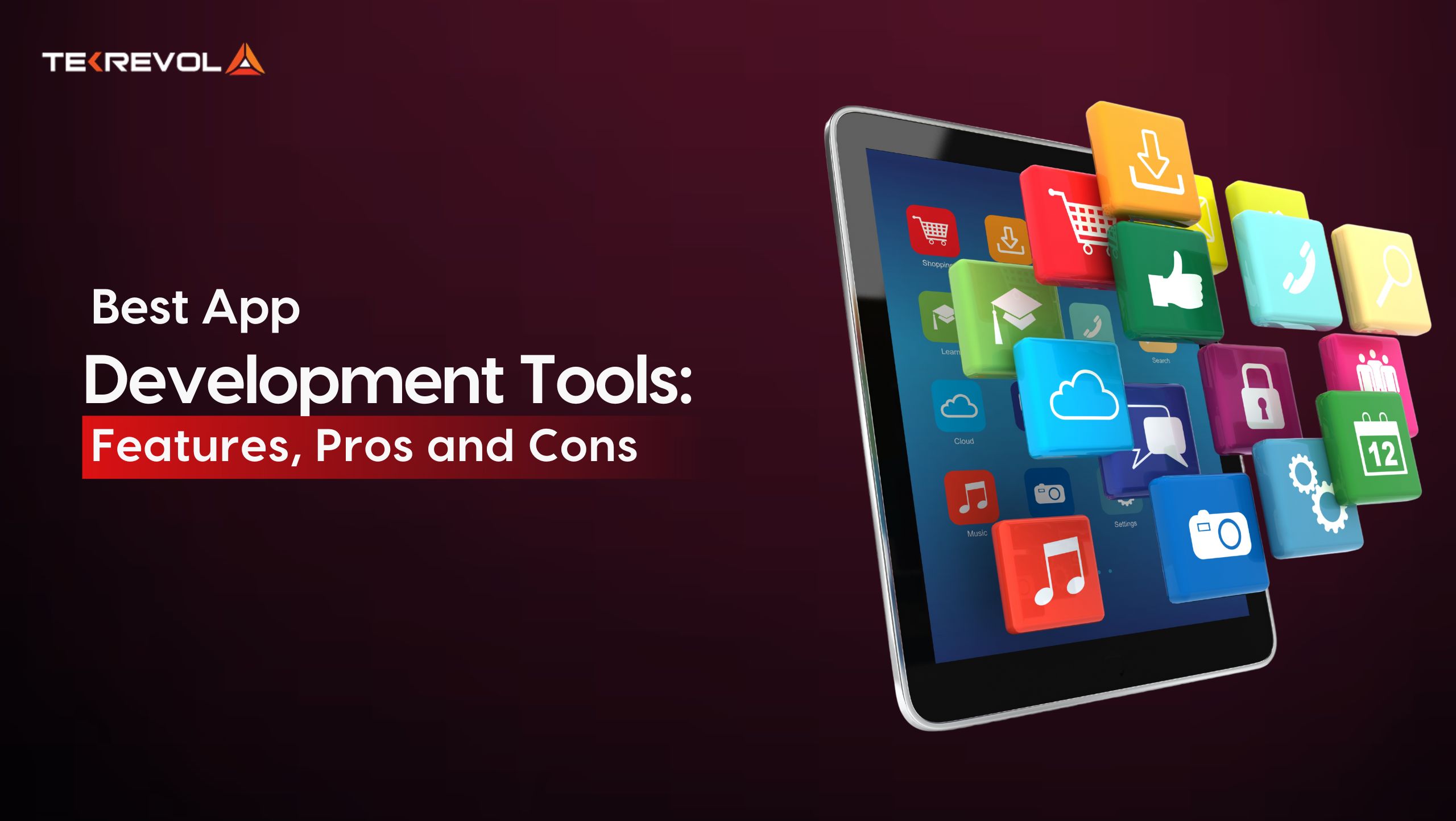The days were long gone when students were confined to a four-walled room with a bunch of books and a blackboard. Now that AI is here, technology has infected every industry segment, including education!
Artificial Intelligence has already changed traditional education by introducing educators to the concept of personalized learning and adaptive assessments. Not only does it improve the outcomes of student learning but it also rekindles the teaching practices while also optimizing the entire educational process.
According to the findings of Grand View Research, the global market for AI in education in 2021 was valued at 1.82 billion USD, and with a CAGR of 36%, it is unlikely that the numbers will fall as soon.
With that being said, let’s explore the application of AI in education and how it’s making learning more inclusive by helping teachers work smartly and tailoring education according to every student’s needs!
Why AI Is Good For Education?
Thanks to Artificial intelligence, modern education has now become more personalized, effective, and easily accessible!
Let’s be crystal clear – it’s not all about automating the work; it’s about introducing students and teachers to new ways of learning that would have been unimaginable 10 or even 15 years ago. Yet, why is AI good for education?
Let’s break it down:
- Personalized Learning at Scale: In traditional classrooms, teachers are unable to address the different learning needs of each student. AI does this by providing adaptive learning platforms that present content according to individual performance. This means students are allowed to move at their level of learning, but they have to ensure they truly understand it before moving forward.
- Administrative Efficiency: AI can take over boring tasks like managing attendance, curriculum planning, and grading student’s tasks. This not only speeds up the educational process but also allows teachers to pay more attention to student engagement. For example, Gradescope, a perfect AI-based grading software can reduce the grading time by up to 70%.
- Real-Time Feedback: Feedback from AI-driven tools, such as instant feedback, helps students know where they are weak and what they have to improve on instantly instead of waiting weeks or days for a teacher to give it. It fast-tracks the learning cycle and encourages continuous improvement.
- Increased Engagement: Why AI is good for students? It is because it helps the students enter into interactive, exciting learning environments such as virtual reality classrooms or AI-driven simulations. The platforms, in turn, make learning more immersive and motivate students to be active.
- Want To Enhance Student Learning With AI?
- Let us transform your institution with AI-powered automation and tools.
What Are the Various Ways AI Is Being Used In Education?
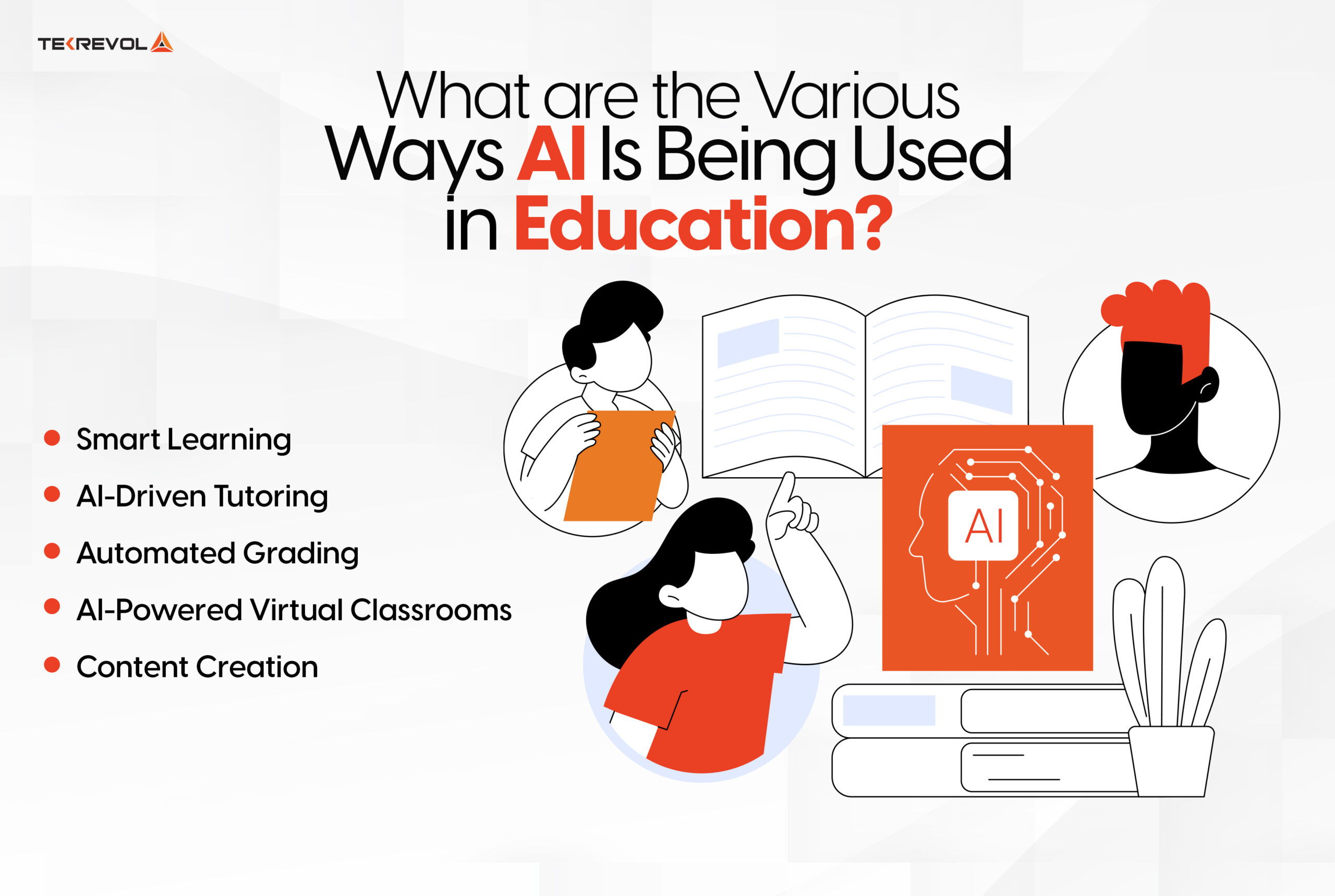
Education is being infused with AI in several ways, from personalizing learning experiences to automating the most demanding of administrative tasks. You might be wondering why AI is good for students. Well, here are the key use cases for AI in the educational landscape:
- Smart Learning: AI works on smart data patterns that analyze student’s performance and create customized lessons for them. One prime example we have here is “Knewton,” which cleverly assesses its students and adapts its learning material on the spot. This means that each student stays on the same basis, moving at his or her own pace, grasping points ahead of the next, and does not fall behind.
- AI-Driven Tutoring: Google’s Socratic is one of the intelligent tutoring systems that gives students real-time help on demand. AI tutor proves itself beneficial in answering user queries, explaining tough concepts, and walking students through assignments by being available 24/7 for them.
- Automated Grading: The biggest advantage of AI in education is that it can automate the grading process. Assessments based on Multiple Choice Question answers can easily be marked with AI tools like Gradescope. The tool doesn’t only do its job quickly and efficiently but ensures that every student receives unbiased grades.
- AI-Powered Virtual Classrooms: Today, more schools and universities are moving towards virtual learning, and all of this is possible due to AI. Education software development services play a crucial role in this transition by enabling users to get tailored solutions. Zoom or Microsoft Teams are examples of how we integrate AI for conducting tasks like transcription, monitoring student engagement, and automating administrative work like attendance.
- Content Creation: Another Pro of AI in education is that it’s capable of developing smart content for both students and teachers. It can automatically generate test papers, quizzes, and even digital textbooks tailored to the curriculum and the student’s learning level.
Read More: How to Create an Educational App
Why Invest In AI Education Integration?
The pros of AI in education are manifold, offering transformative benefits for both students and educators. Key advantages include:
- Learning at your own pace: When it comes to AI, personalization is what it brings: no two students get the same curriculum, and every student is on one that matches their learning style and pace. Statista reports that 49 percent of students take adaptive learning platforms for their personalization.
- Improved Student Engagement: AI chatbots and VR Tutors, AI-based learning tools, provide people with a fun way to learn which makes them stay motivated and on track.
- Efficiency for Teachers: Through AI, we are not only saving the time of teachers but also of students by assisting them, especially with making attendance, and grading and generating reports. These automatic grading systems can grade hundreds of assignments in minutes.
- Increased Inclusivity: Another pro of AI in education is that it can help make learning easy for students who are visually impaired or have a disability of any kind. A prime example of such AI is Kurzwell 3000, which helps to make education accessible to anyone from anywhere.
What Education Challenges Can You Solve With AI?
Education systems around the world have large class sizes, diverse learning needs, and limited resources. Developing premium AI solutions offers innovative ways to tackle these issues:
- Handling Large Class Sizes: The ‘Smart’ Content Creation Platforms run on AI to make customized resources for students in large classes to create content resources personalized to each student, even in larger classes.
- Adaptive Learning: Another advantage of AI in Education is that it allows course curriculum and material to be tailored to learners’ strengths and weaknesses. For example, DreamBox’s math lessons change in real-time based on student performance.
- Streamlining Communication: Ivy.ai is a virtual assistant that fills the communication gap between students and educators, providing never-ending administrative queues for them.
How Can AI Empower Educational Institutions?
AI has introduced us to such tools that have surely changed the entire realm of education. From grading system automation to personalized learning, AI has surely empowered institutions profoundly. Here is a little breakdown of the advantages of AI in education.
- Infrastructure and Budgeting: AI implementation also brings along a powerful technical foundation: high-speed Internet, cloud services, and compatible hardware.
- Identify the Right Tools: Choose AI tools that make sense for your institution. For instance, if you want fewer hours of manual grading, an automated assessment tool such as Gradescope would be necessary.
- Staff Training: Few educators know how to use AI tools effectively. Institutions can provide training workshops or work with ED tech companies to help them make the switch from traditional teaching methods to AI-based teaching.
- Data Privacy Considerations: When handling student data, comply with data protection laws like GDPR. Institutions should adopt strict policies in data collection, storage, and usage to avoid privacy breaches.
What Are The Challenges Of AI In Education?
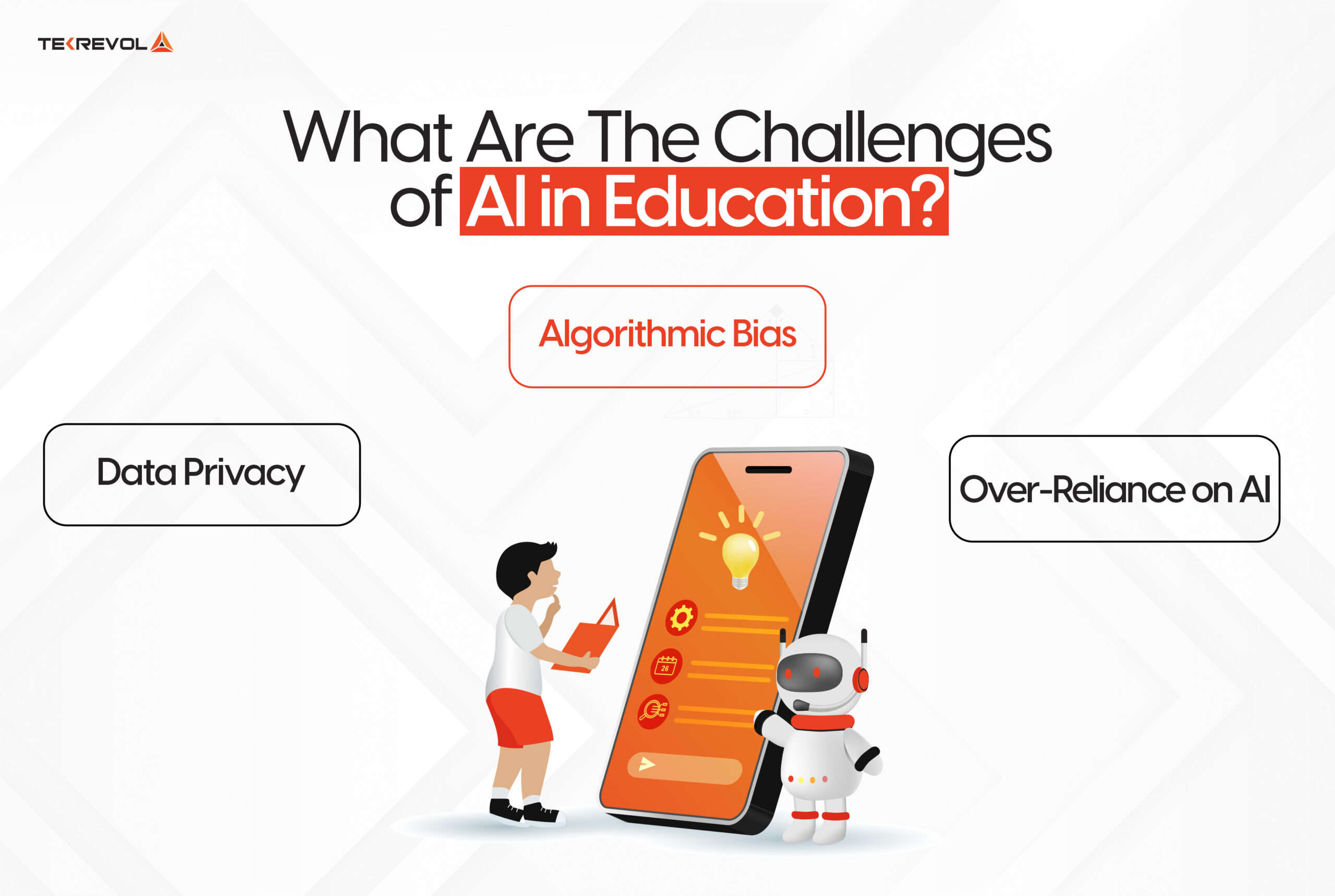
Though there are many pros of AI in education, there are challenges to such integration. Here are the most critical issues:
- Data Privacy: To run AI tools, you need massive amounts of data, raising privacy and security concerns. Sensitive student information to safeguard must be protected.
- Algorithmic Bias: Data is only as good as the person who created it. But if the data is biased, AI potentially perpetuates inequalities– particularly in predictions for assessments made using predictive analytics.
- Over-Reliance on AI: People are becoming more worried that too much emphasis on AI will remove the human teacher from their role. The application of AI in education has automated the entire learning process, putting the careers of teachers at stake.
What Are The Advantages Of AI In Education?
AI truly has the potential to bring various benefits to the education industry. Here is a detailed breakdown of some pros of AI in education:
-
Enhanced Student Engagement
There are numerous ways in which AI can positively impact the learning experience. First, it fosters a deeper connection between students and their coursework, helping them enhance their passion for the subject. This is done by actively promoting class participation and interaction, leading to more meaningful discussions and better understanding.
Student engagement encourages students to take ownership of their learning, resulting in improved self-motivation and greater accomplishments. Once students start taking ownership of their academics on their own, you can surely expect better academic outcomes.
-
Efficient Administrative Tasks
AI can help streamline administrative tasks, saving users time and enabling employees and teachers to focus on more strategic activities that enhance overall productivity.
When things are being done by AI, you can expect the work to be done more quickly and efficiently. Moreover, AI administration leads to quicker customer service and higher satisfaction levels.
Integrating AI in education fosters a positive work environment by reducing employee frustration and boosting morale with job satisfaction.
-
Instant feedback and support:
Chatbots powered by AI provide real-time feedback and assistance to students for independent learning. Learners can access these tools whenever they require so that they can become self-reliant and solve their problems on their own.
These AI-based chatbots in education instantly address the users’ queries and offer them instant help with their education, reducing their reliance on human help.
That said, students’ and teachers’ continuous interaction with AI-driven systems can adapt to individual learning styles, providing them with customized solutions so that they can learn at their own pace.
-
Data-Driven Insights
By analyzing vast amounts of student data, AI provides insights into a student’s unique learning patterns and what to work on next. What’s interesting is that educators are now looking at test scores, homework completion rates, and engagement metrics to broadly view each student’s academic journey.
Using this data-driven approach, instructors can adapt their teaching methods, modify curriculum materials, and provide more targeted support, which will better help students learn. It helps to find struggling students early on and offers them instant help so that they can progress like everybody else in the class.
What Will The Future Of AI In Education Be Like?
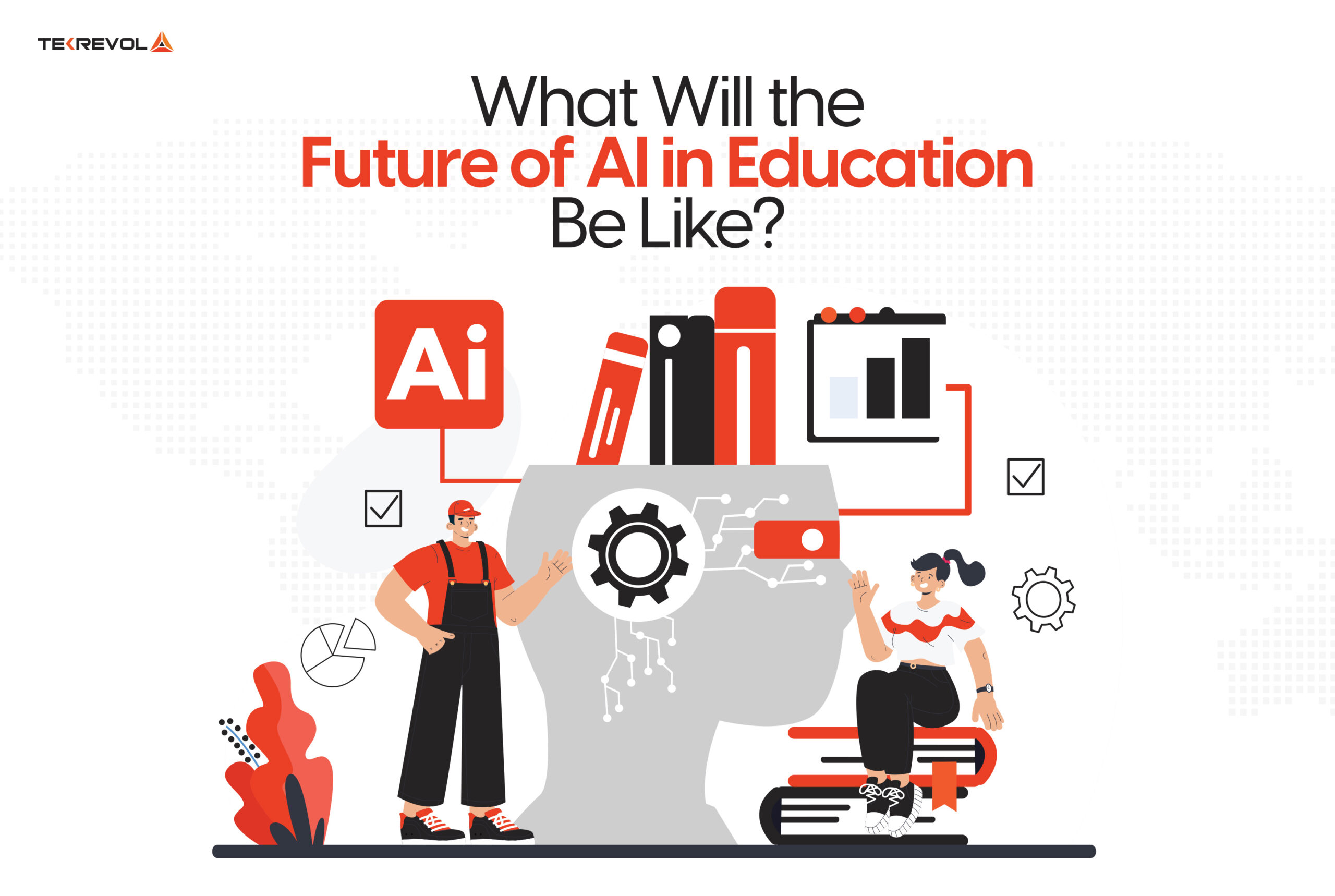
AI technology will only continue to grow its presence in the field of education. The future of AI is surely a promising one. Here’s what you can expect in the times ahead:
- AI-Driven Curriculum Design: Very soon, AI will be used to design curricula specifically suited to current market demand, with students graduating job-ready.
- Immersive Learning Environments: AI-empowered technologies like Augmented Reality (AR) and Virtual Reality (VR) will redefine classes with immersive learning environments. What if you could ‘walk’ through ancient civilizations using VR? In a history class? This is just one of the prime examples of Why AI Is good for students!
- Global Access to Education: Already, AI-powered platforms such as Edmodo and Coursera are being used to educate students globally. In the future, this will further democratize education and remove geographical and financial barriers.
How Tekrevol Can Help
Tekrevol is a leading Artificial Intelligence company that provides advanced solutions to enable institutions to embrace AI seamlessly. We craft, design, and build custom AI software from scratch to deliver exquisite solutions for a smooth, secure, and effective transition to AI-powered education.
- AI-Powered Learning Platforms: The systems we develop are adaptive learning platforms geared towards each student’s specific needs.
- Data Privacy Compliance: We protect your institution’s data according to regulations such as GDPR.
- Staff Training: We offer comprehensive training programs to equip your educators with the skills necessary to use AI in the classroom.
- Ready To Bring AI To Your Institution?
- Partner With Tekrevol For Custom AI Solutions That Drives Growth
Conclusion and Key Takeaways
Without a doubt, the potential benefits of AI in the education industry are vast and promising. From personalized learning to automated assessment grading, AI-powered tools, and technologies are changing how we learn and teach.
By analyzing student’s behavior, performance, and learning styles, AI can help educators to provide more effective and efficient instructions to cater to every student’s need to the fullest.
In the upcoming years, we expect some more exciting developments in AI-powered education, including enhanced learning management systems that will lead to better learning outcomes and higher student satisfaction.

 3169 Views
3169 Views October 16, 2024
October 16, 2024